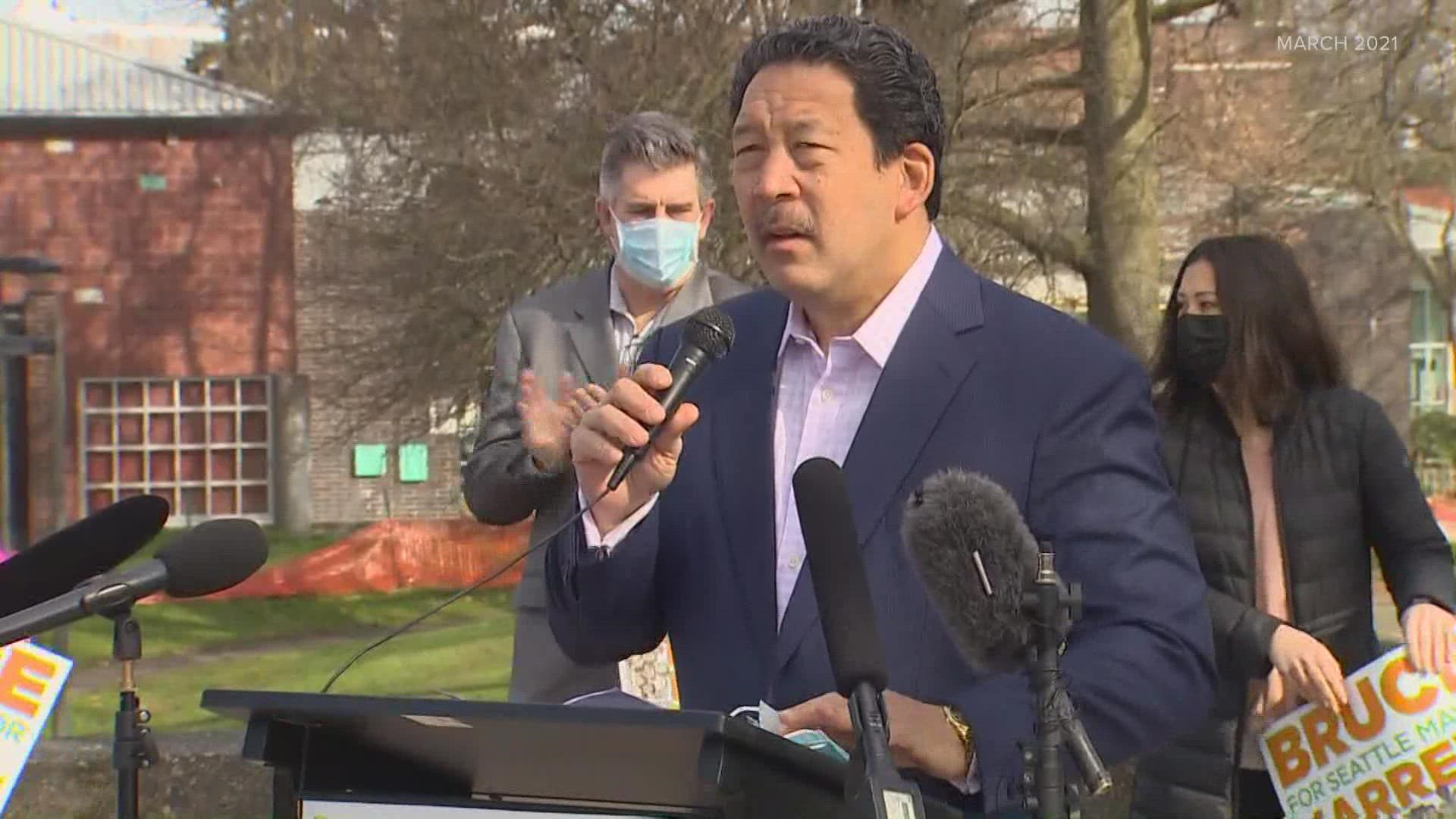SEATTLE — Staying committed to his vision of “One Seattle,” Seattle Mayor Bruce Harrell said the “status quo” in the city is unacceptable during his first State of the City address on Tuesday.
He added, “that is the one area where we must all agree.”
“It seems like every day I hear stories of longtime small businesses closing their doors for good or leaving our city; of families forever changed because of senseless tragedy driven by gun violence or overdose; of rising rents and an inability to pay bills or find housing; of climate impacts; of disillusioned youth and residents who don’t feel seen or heard,” he said.
Noting that he did “not inherit clear departmental systems” to address public safety and homelessness in Seattle, Harrell said he believes in going back to the basics, which is where “good governance begins.” That includes everything from the city’s housing-first police, fixing infrastructure, to public safety.
“Going back to the basics means serving the public – the entire public. And it means serving them well,” he said.
He reemphasized the immediate action needed to address crime in the city and use data to pinpoint hotspots.
Harrell said his administration is reaching out to members of the criminal defense bar to help ensure everyone’s constitutional rights are being protected.
Harrell said his administration’s public safety plan is already being rolled out. Part of that, he said, requires more police officers. He said the “depleted staffing” does not allow the department to react to emergencies and crime with the appropriate response times. Harrell said the city has funding to hire 125 new officers in 2022.
As for his stance on the homelessness crisis, Harrell said it must be treated as such. Though there will be future efforts in collaboration with King County leadership to get people off the streets, Harrell said the city’s efforts cannot wait. His administration, he said, has been evaluating the existing systems. So far, the city has combined six systems in different departments to track outreach and service.
Harrell also addressed recovery from the COVID-19 pandemic. He said that recovery must "focus on the most impacted and the most vulnerable." That means supporting small businesses, arts and nightlife, child care, youth, mental health support and rental assistance.
“Clearly, the challenges facing Seattle are bigger than me alone. The path forward requires empowering each other…It means engaging our greatest resource – the people of our city – in the solutions we want to see,” Harrell said.
Harrell took office on Jan. 1, replacing former Mayor Jenny Durkan.
During his address following his swearing in ceremony, Harrell outlined policy goals and promised to tackle issues including health care, the COVID-19 pandemic, police reform, and homelessness to unite the city around a “One Seattle” vision.
One of the goals Harrell addressed is having health care for all. Harrell said his administration has already begun to have discussions with health care facilities and civic leaders to make sure “every resident in our city not only has health care but is healthy,” adding that his goal is to ensure Seattle has the healthiest population in the nation.
Harrell also discussed a plan to clean up city parks and not allow people to suffer on Seattle streets and sidewalks, saying his office will publish a homelessness response plan during his first quarter in office.
With shootings at an all-time high, the mayor also directed Seattle police to focus on crime hotspots. Harrell said that compared to 2020, last year saw aggravated assaults increase 24%, shootings and shots fired incidents increased 42% to an all-time high and violent crimes increased an overall 20%, hitting the highest level in 24 years.
In 21 days in January, officers made 23 felony arrests, 14 misdemeanor arrests, recovered stolen property during 24 incidents, seized narcotics during 10 incidents and engaged with shop owners at and around 12th Avenue South and Jackson Street in Little Saigon on more than 100 interactions.

